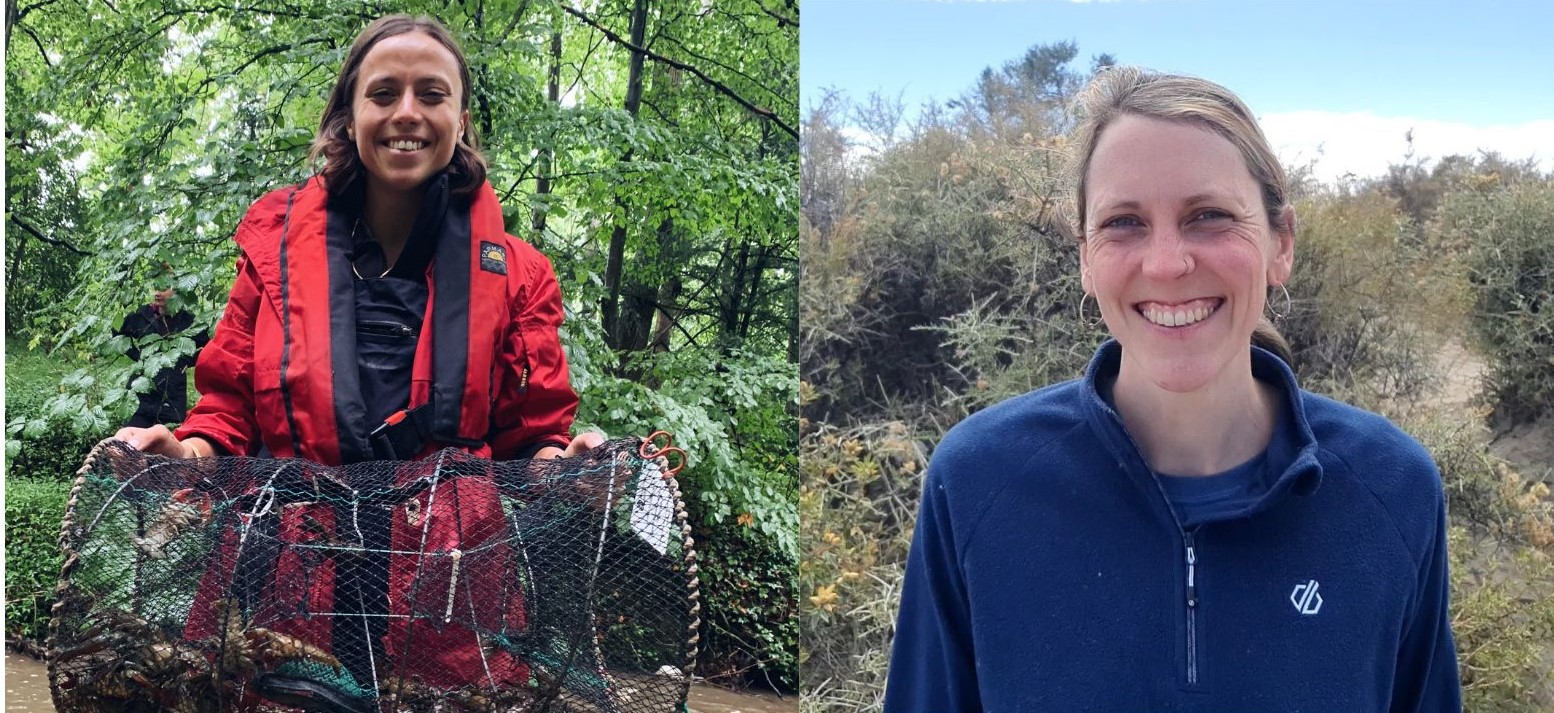Future Leaders tackle global challenges

Two water@leeds academics have received prestigious fellowships to support their pioneering research.
Dr Jessica Baker, School of Earth and Environment and Dr Josie South, Faculty of Biology are among 75 people awarded Future Leaders Fellowships, which aim to develop the next wave of world-class research and innovation leaders in academia and business.
Funded by UK Research and Innovation (UKRI), the appointments which also includes Dr Mark Hopkins, from the School of Food Science and Nutrition, takes the total number of Future Leaders Fellowships at Leeds to 21.
Professor Nick Plant, Deputy Vice-Chancellor: Research and Innovation at Leeds, said: “The Fellowship projects led by Jess and Josie reflect the breadth of our world-class research undertaken at Leeds and the remarkable talent we have working here whose impactful research addresses global challenges.
“The Future Leaders Fellowship provides the time and flexibility for researchers to tackle ambitious projects, and contribute to maintaining the UK’s status to be at the forefront of cutting-edge research and innovation.”
The 75 new Future Leaders Fellows will benefit from £101 million to tackle major global issues and to commercialise their innovations in the UK.
Professor Dame Ottoline Leyser, UKRI Chief Executive, said: “UKRI’s Future Leaders Fellowships provide researchers and innovators with long-term support and training, giving them the freedom to explore adventurous new ideas, and to build dynamic careers that break down the boundaries between sectors and disciplines.
“The fellows announced today illustrate how this scheme empowers talented researchers and innovators to build the diverse and connected research and innovation system we need to shorten the distance between discovery and prosperity across the UK.”
Leeds’ Future Leaders
Dr Jess Baker
Dr Jess Baker, from the School of Earth and Environment, leads the project ‘Climate Recovery and Adaptation potential of Forests in the Tropics’.
Measures are urgently required to tackle rising tropical deforestation and to alleviate climate change impacts. International climate treaties recognise forests as an essential resource for mitigating global climate change, but their role in helping humans adapt to rising temperatures hasn’t yet been assessed.
This Fellowship will deliver the first in-depth assessment of how tropical forests can contribute to climate change adaptation. The project will deliver crucial new understanding of how intact and regenerating forests can reduce vulnerability to future climate extremes.
Jess said: “Tropical deforestation and climate change adaptation are among the most pressing challenges facing humanity today.
“This Future Leaders Fellowship presents an exciting opportunity to transform the way tropical forests are valued, strengthen conservation incentives and improve the effectiveness of policies that support climate resilience.
“My research will deliver benefits to some of the world’s most vulnerable communities, who are already experiencing the damaging effects of climate change and need climate adaptation solutions now.”
Dr Josie South
Dr Josie South, from the Faculty of Biological Sciences, will lead the project ‘Upscaling Invasion Impact Prediction’.
Invasive species are a major cause of biodiversity decline and economic loss, but it’s currently very difficult to predict which invasive species will cause what kind of impact
Her Fellowship will work to unravel the mechanisms that drive these negative impacts, which will aid global and local proactive management and prevention. The work will include ambitious geographically coordinated experiments with partners from seven countries and a particular focus on the impact on freshwater species, as they’re often overlooked in conservation policy and are at dire risk of extinction.
Josie said: “This project will not only support my research career in aquatic invasion ecology but it will also vastly improve the capacity to address associated global challenges related to invasive species, such as food security and sustainable livelihoods.
“The success of this programme will also provide a platform to launch the creation of the International Freshwater Invasion Network, which leverages collaborative and interdisciplinary expertise to solve challenges beyond the scope of this Fellowship.”
